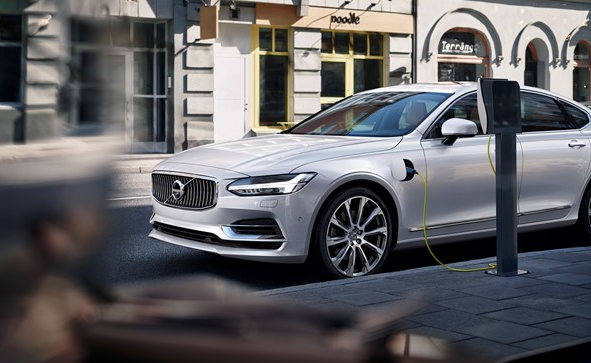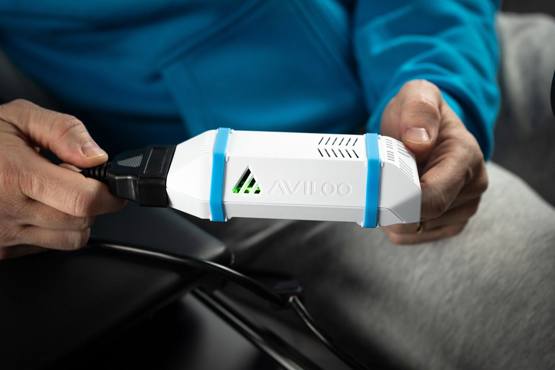Accurate battery health monitoring will have a huge impact on the resale value of used electric vehicles (EVs) so consensus around certification processes will be essential if the public’s confidence is to grow.
The rise of electric vehicles (EVs) has certainly introduced new complexities especially when it comes to the resale of used EVs.
A crucial aspect that directly influences that resale value is the health of the vehicle’s battery, and as the EV market matures and needs the mainstream private motorist to come on board, the ability to accurately assess and certify battery health is becoming increasingly important.
Uncertainty in the still relatively new technology means that many used car buyers will need extra assurances before they seal the deal on a pre-owned EV given the great expense involved in replacing a failing or ineffective EV battery when it has passed its OEM warranty period.
This has significant implications not only for consumers but also for the entire supply chain involved in remarketing these vehicles. Ultimately, the success of the used EV market will depend on the industry’s ability to provide transparent, reliable and accessible information about battery health – and that will require timely regulation.
Currently there is no universally accepted method for measuring battery health. Efforts to standardise assessments are taking time – but it’s on the horizon.
The United Nations Global Technical Regulation No.22 is being developed to set an international benchmark for EV battery performance and monitoring. It mandates a minimum performance level – such as the eight-year, 100,000-mile warranty – and it introduces state-of-health monitoring that could become a standard in Europe and the UK.
Abdul Chowdhury, head of vehicle policy at the UK’s Office for Zero Emission Vehicles, told a recent meeting of the Vehicle Remarketing Association: “Europe has implemented that with the Euro 7 proposals. The UK Government is still considering UK implementation and options and what it might mean for us.”
The Euro 7 standards, which come in on July 1, 2025 in the EU, mandate that BEV and PHEV batteries in cars must retain an energy storage capacity of 80% at 5yrs/100,000km and 72% at 8yrs/160,000km. For LCVs the standard is 75% and 67% for the same usage periods.
In addition to setting thresholds for the durability in terms of energy storage capacity, the Euro 7 regulation contains placeholders for durability requirements related to the achievable range. Battery durability requirements will be revised either when a corresponding UN regulation is adopted or based on a battery durability report to be submitted by the European Commission at the end of 2027.
Why is EV battery testing needed?
“If that were to be implemented, as has been proposed in Europe, it would mandate every manufacturer to have a battery health status monitor on the vehicle that is easily accessible,” he said. Drivers and potential purchasers would be able to view the battery health via the car’s display, and the trade would be able to access it also via diagnostics.
Chowdhury noted that the GTR regulations aim to ensure that all manufacturers adhere to the same technical requirements, which would make comparing battery health across different vehicles and brands easier and more transparent.
 Philip Nothard, chairman of the Vehicle Remarketing Association, said he suspected that battery health is becoming as critical to vehicle value as odometer readings are. “It’s clear that battery health is the new battleground in used vehicle markets,” he said.
Philip Nothard, chairman of the Vehicle Remarketing Association, said he suspected that battery health is becoming as critical to vehicle value as odometer readings are. “It’s clear that battery health is the new battleground in used vehicle markets,” he said.
As government regulations take shape, industry stakeholders are stepping up their own efforts to standardise and certify battery health. “Independent battery health checks are crucial for the next two to five years,” according to Roland Gagel, a board member at the European car remarketing association CARA.
CARA has filed a certification standard with the European Intellectual Property Office to provide consistency between independent and factory testing.
The trade body is concerned that there’s not enough data available on transaction prices for cars with battery checks versus those without, which makes it difficult to quantify the financial impact of battery health certifications on vehicle resale values. The potential cost and complexity of widely implementing battery testing will also need to be controlled.
Despite these challenges, there is clear consensus that battery health will play an increasingly important role in the EV market’s future, both in determining resale values and in building consumer confidence.
Chowdhury and his colleagues at the Office for Zero Emission Vehicles are closely watching developments in Europe, particularly the Euro 7 proposals, which could significantly influence UK policy but the goal is clear: build trust in the used EV market.
EV battery testing solutions are available
Whether through government regulations, independent certification or innovative testing methods, ensuring that dealers and consumers have reliable information about battery health will be crucial.
A trio of businesses which have developed solutions for used EV sellers, whether wholesale or retail, were put in the spotlight at the recent Vehicle Remarketing Association meeting: Altelium, Aviloo and ClearWatt.
 Altelium, a UK-based company, has developed an OBD plug-in diagnostic solution and also offers warranty products linked to battery health analytics.
Altelium, a UK-based company, has developed an OBD plug-in diagnostic solution and also offers warranty products linked to battery health analytics.
Alex Johns, its partnership lead, explained that Altelium has developed two methodologies for testing battery health, one of which is tailored specifically to the needs of the sector. “For the remarketing group, we went down the route of a very quick test and a very simple test, so that you can add value as quickly as possible, and then pass on the vehicle in the flow, whether you’re an auctioneer, wholesaler or retailer.”
Users can plug in the OBD to read the information from the vehicle and quickly assess the battery health of a vehicle through an easy-to-understand report which includes nformation on how the battery’s performance compares to industry standards, real-world range under various conditions, and charging speeds.
Altelium’s platform is web-based and optimised for various devices. Users can also enter a vehicle’s registration in its virtual forecourt to review all the tests done, sorted by make and model.
Altelium’s platform also ties battery health reports to warranty products, and Johns said these can be especially valuable for vehicles nearing the end of their manufacturer’s warranty period, helping to reassure buyers who might be concerned about the longevity of the battery.
“The probabilities of claims are pretty damn low because the probability of the EV battery degrading way too fast or failing is very low,” Johns added.
ClearWatt’s approach is an app-based self-service system, OEM agnostic, and a benefit of being hardware-free is that any party involved in the resale chain can easily conduct a battery health test, said co-founder Patrick Cresswell.
“The industry told us it needs to be hardware-free for large-scale operations so we had to get creative with how a vehicle can be tested efficiently and reliably,” says Cresswell, who had previously been head of urban mobility for vehicle rental giant Europcar and headed its E-Car Club.
 “We’re really trying to tackle the full suite of inertia and hesitancy that, we know from experience, exists with non-experts coming to the EV world,” Cresswell (pictured) says.
“We’re really trying to tackle the full suite of inertia and hesitancy that, we know from experience, exists with non-experts coming to the EV world,” Cresswell (pictured) says.
It is designed to be flexible, with three main approaches for collecting the necessary data. The primary method is a passive approach where the user simply downloads the app, connects their car, and lets the app do the work. Within the day, they’ll have a battery health report.
The other options are for the user to input the necessary data manually, and integration with fleet operators’ telematics systems.
The ClearWatt app accounts for external conditions, driving behaviour, and the battery’s inherent characteristics, and isolates the impact of battery health on range, independent of other factors such as road type and elevation.
Cresswell stressed the importance of providing reliable battery health data that works across the entire used EV resale chain, from remarketers to dealerships and the end purchaser.
“The happy path for everybody is that the test happens at the very top of that chain because everybody involved in the resale of that vehicle therefore has eyes on what they’re buying,” he says.
Aviloo, which was established six years ago in Austria, claims to have one of the most exact and reliable independent tests for EVs and PHEVs, after accumulating “one of the most extensive databases on battery degradation in the world”, according to Matthieu Peugeot, Aviloo’s sales manager.
 Aviloo offers two types of testers which connect to the car’s OBD port: the Premium Test which is a dynamic check that requires the connected vehicle to be charged to 100% then driven until down to 10% charge within seven days to gain an in-depth analysis of the battery’s state of health; and the Flash Test, a stationary measurement that can be completed in just three minutes to create an ‘Aviloo Score’ out of 100 and which “really fits B2B requirements,” according to Peugeot.
Aviloo offers two types of testers which connect to the car’s OBD port: the Premium Test which is a dynamic check that requires the connected vehicle to be charged to 100% then driven until down to 10% charge within seven days to gain an in-depth analysis of the battery’s state of health; and the Flash Test, a stationary measurement that can be completed in just three minutes to create an ‘Aviloo Score’ out of 100 and which “really fits B2B requirements,” according to Peugeot.
If substantial risks are detected the Flash Test provides a ‘red flag’ report, with specific indications of the nature and type of fault.
Peugeot added that the testing device operates autonomously, without the need for a smartphone, Wi-Fi, or Bluetooth connection.
Aviloo’s Peugeot stressed the importance of transparency and trust in the resale market for used EVs. He said. “We are creating trust through our checks and diagnostics. This trust is crucial not only for boosting resale values but also for ensuring that consumers feel confident in purchasing a used EV.”
Some clearly already are confident – cars such as the Nissan Leaf, Renault Zoe and BMW i3 have been in the market more than a decade and are being stocked and sold by used car dealers well past the end of their manufacturer warranty.
But as the parc of battery-powered cars continues to grow, more dealerships will need confidence that the stock they’re purchasing will give them profit and will not be creating problems for them and their customers.
As Altelium’s Johns says: “As the market matures, and hopefully we don’t get too many external shocks, people will gradually build a better understanding of EVs and their batteries and that will be a significant factor in the valuation of the vehicle.”


